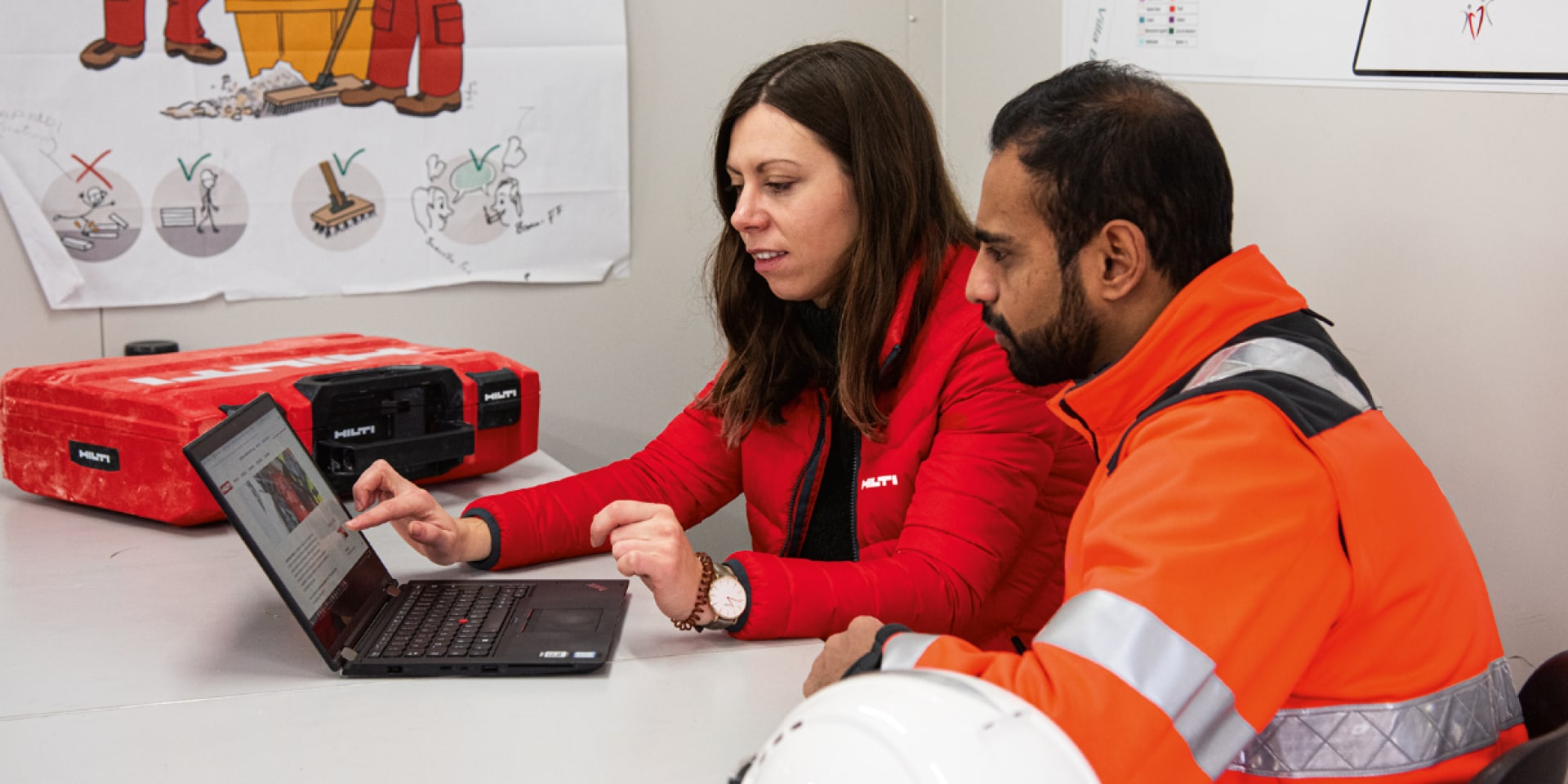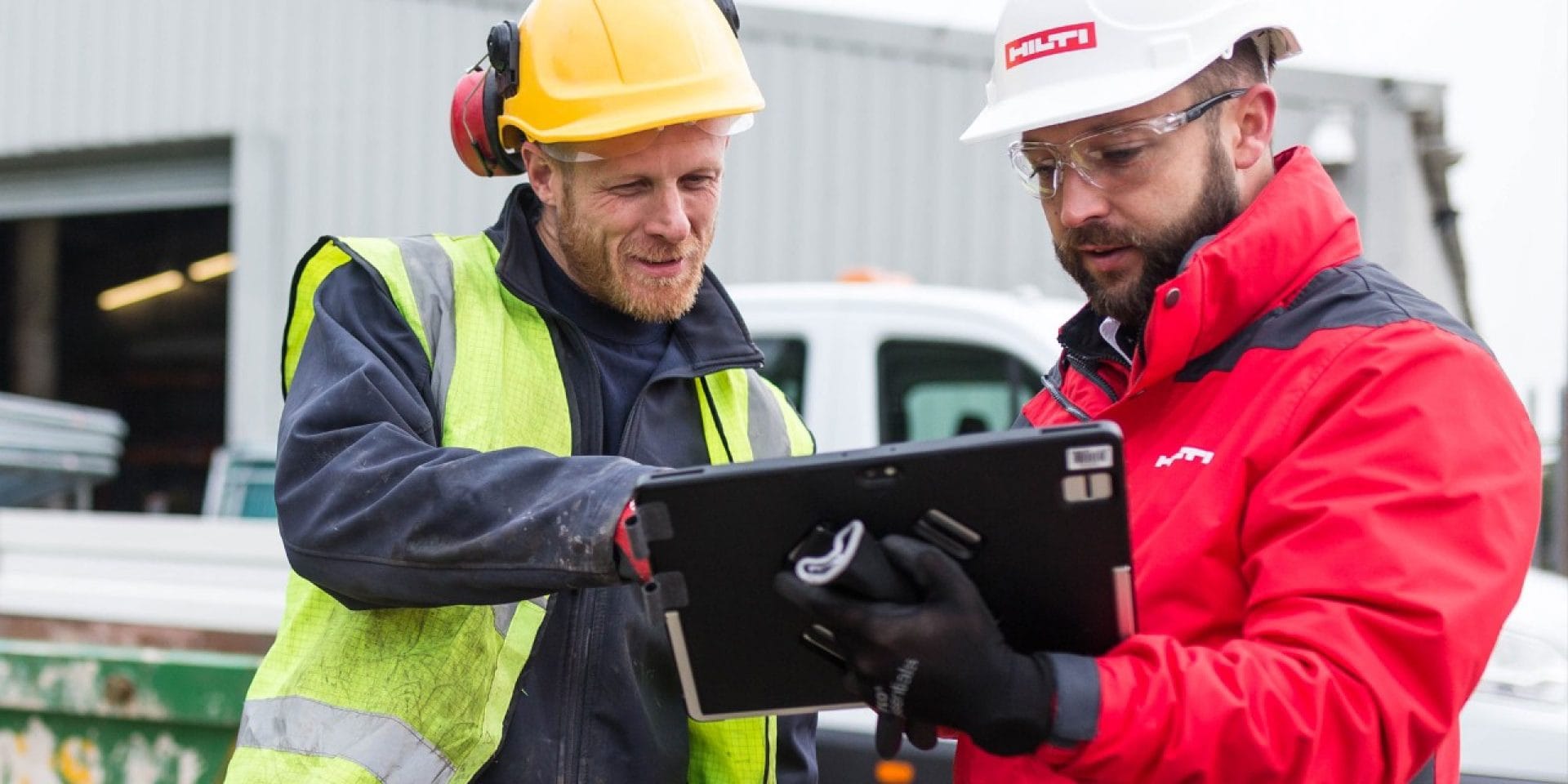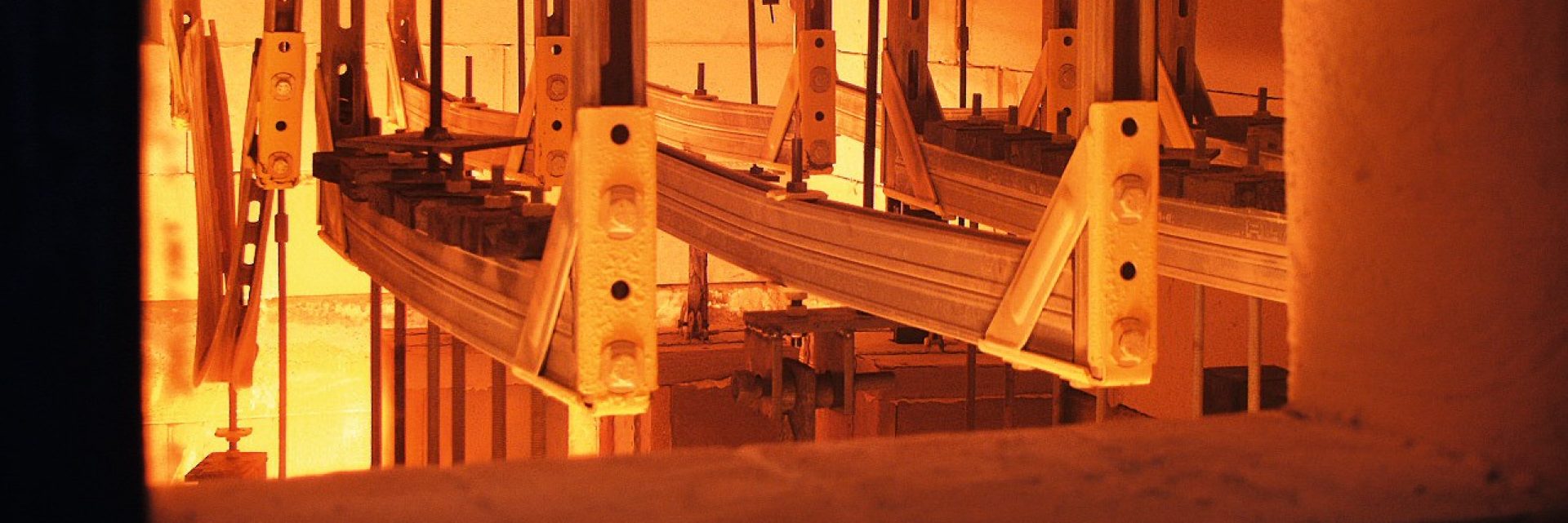
Safety In Case Of Fire
EAD design guideline and legal requirements for Mechanical, Electrical and Plumbing supports
Watch the video to learn more

The fire challenge: creating time to escape
One of the most important considerations when designing fire-resistant mechanical, electrical and plumbing (MEP) support systems is to give people enough time to get out safely in case of fire. The few existing regulatory guidelines, such as European Assessment Documents (EAD), focus on how long overhead installations must maintain their structural integrity when faced with intense heat.
Did you know that...
Fires occur
per year worldwide
Collapsing suspended ceilings, blocked escape routes and damaged indoor or outdoor stairways are to blame for many of these casualties. When pipe and service installations are not designed with fire safety in mind, they can turn into hazards extremely quickly after a blaze breaks out. The thousands of unseen pipes, ducts, cables and strut channels suspended from the ceiling disintegrate in the presence of heat, ultimately crashing to the ground and blocking escape routes.
Fire typically spreads through a building in just 5 minutes
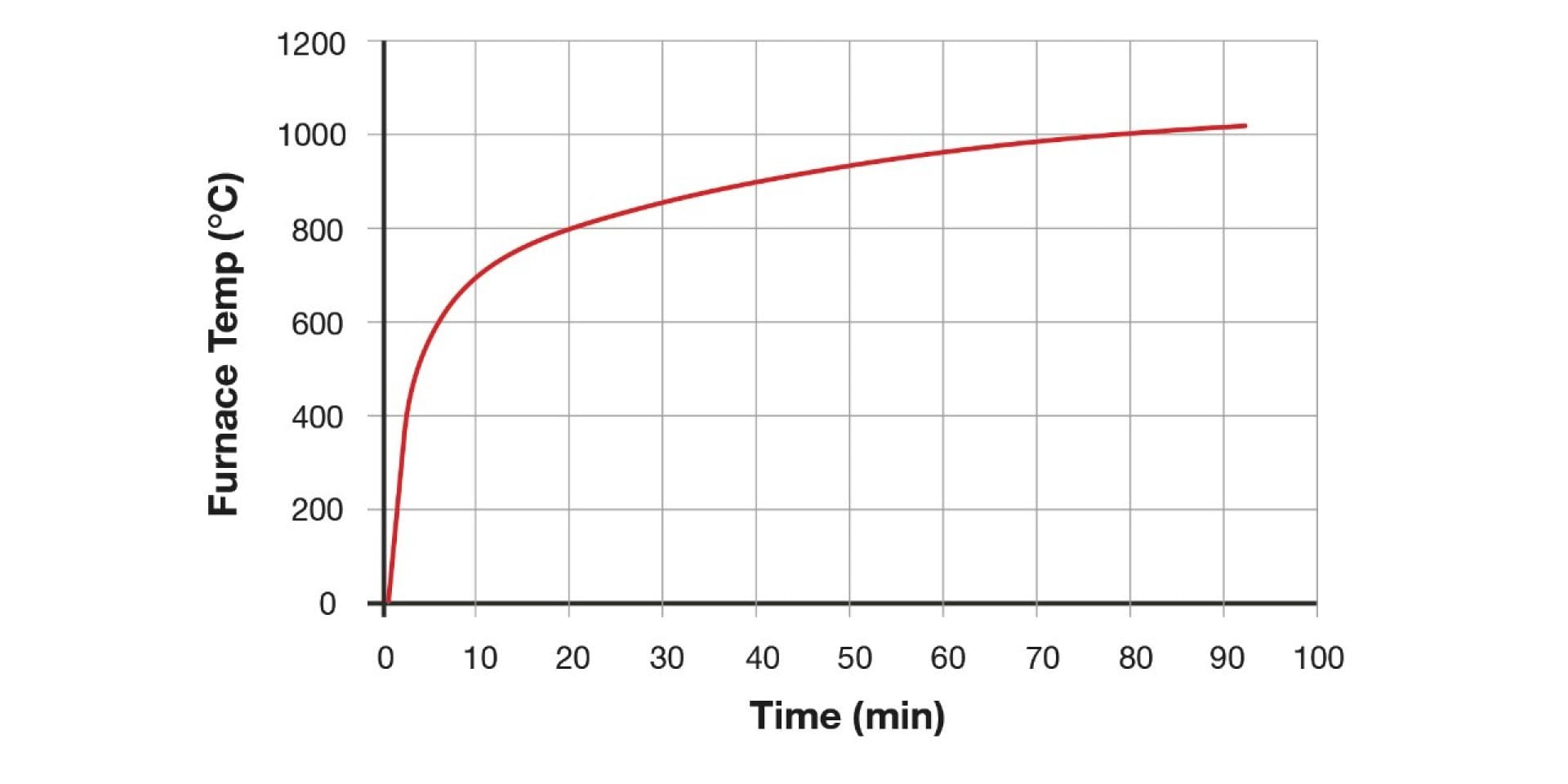
As the temperature rises fast, the steel in pipe support systems starts to weaken.
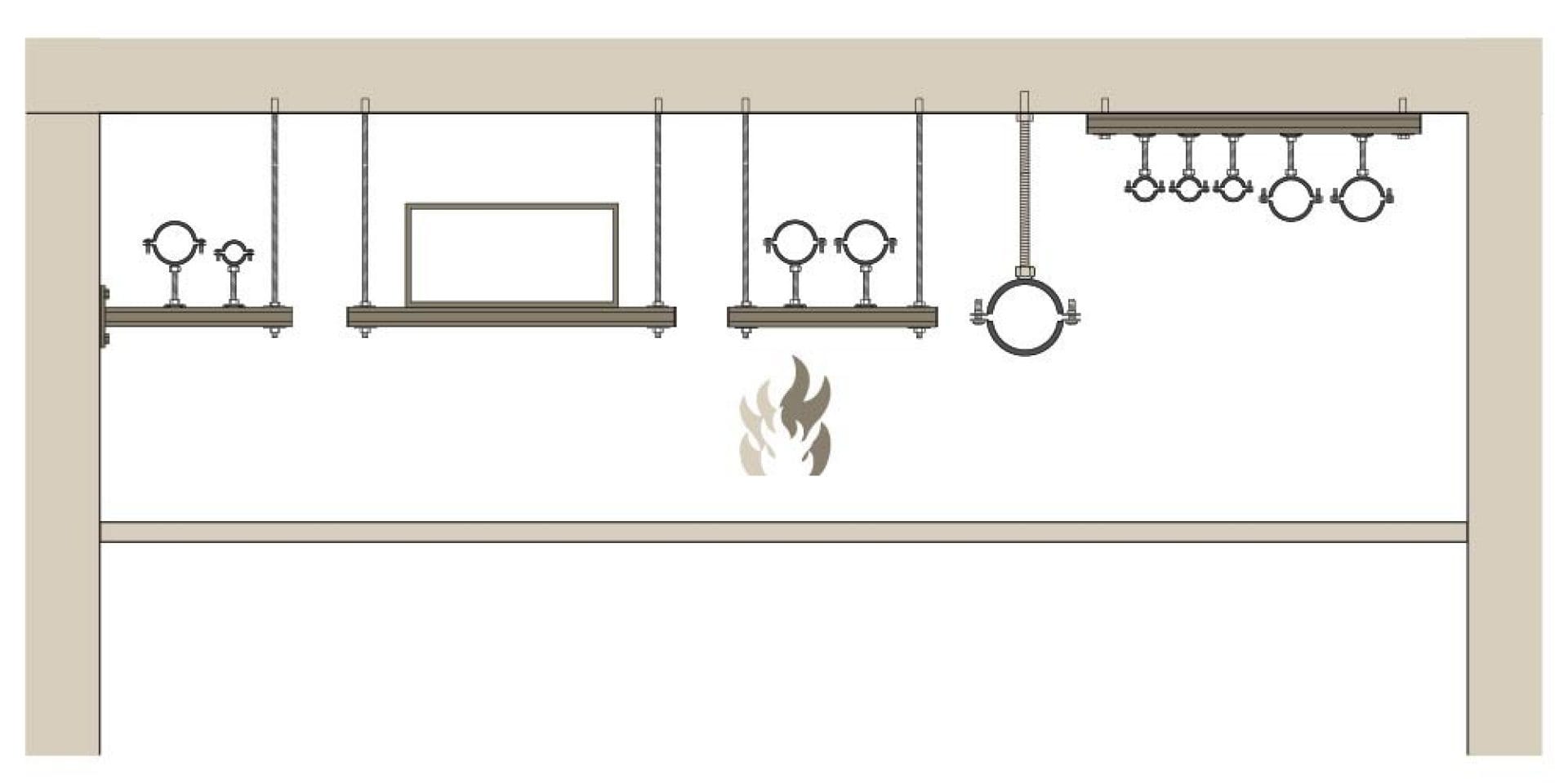
National regulations and legal requirements
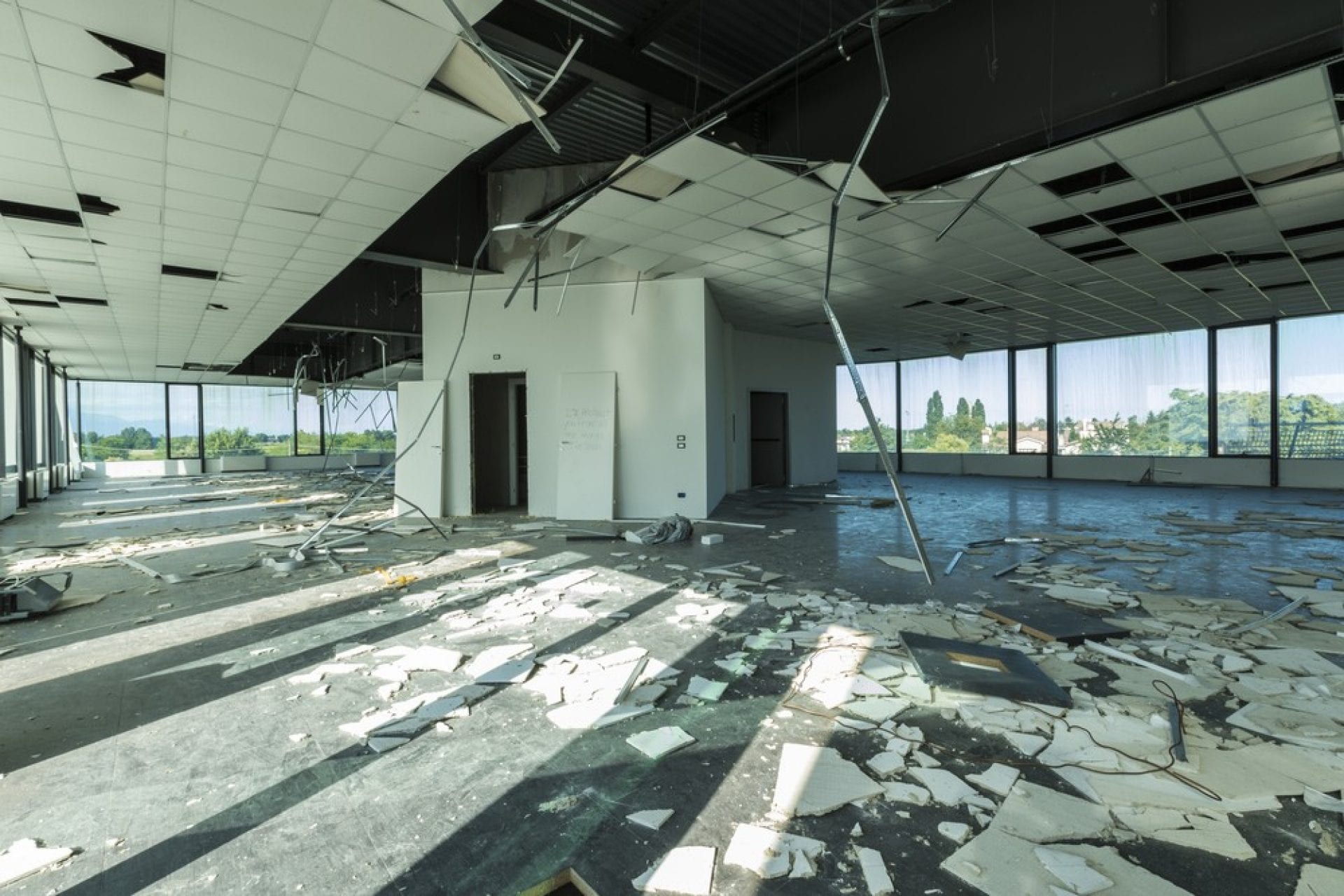
Currently, two harmonised European standards – EN 13501, which is a classification of materials’ reaction to fire, and EN 1366-1:2104, which describes fire resistance tests for service installations – are among the most important sources of design guidance for fire-resistant ventilation ducts and smoke control.
In addition to these Europe-wide standards, the German MLAR directive also explains the importance of fire safety for ventilation systems, escape routes and suspended ceilings:
Ventilations systems
- Section 5.2.2 refers to ventilation ductwork, which needs to be fire resistant.
- Section 5.2.4 refers to ventilation ductwork above suspended ceilings, which needs to be fixed in such a way that it won't collapse in the event of fire.
Escape routes
- How to keep escape routes free and for how long in the event of a fire.
Suspended ceilings
- For fire-rated suspended ceilings, the required fire resistance must be guaranteed in the event of a fire coming both from above and below the ceiling.
- Special requirements must be observed for modular support systems when they are installed between the structural ceiling and a suspended ceiling.
Fire-resistant design methodology
Designing fire-resistant pipe support solutions is a crucial task for all planners, architects and engineers.
Despite its importance, there is still no standardised and trusted design method. Even the widely-used Eurocode 3 has been proven inadequate for predicting deformation by current academic and industry research.
The shortcomings of Eurocode 3 are due to its limited scope: this standard deals with the stability of structural steel elements rather than the thin, shaped steel profiles used for pipe rings, strut channels and the like. Nevertheless, Eurocode 3 is often erroneously applied when designing these lighter metallic elements.
Why is Eurocode 3 unsuitable for pipe supports?
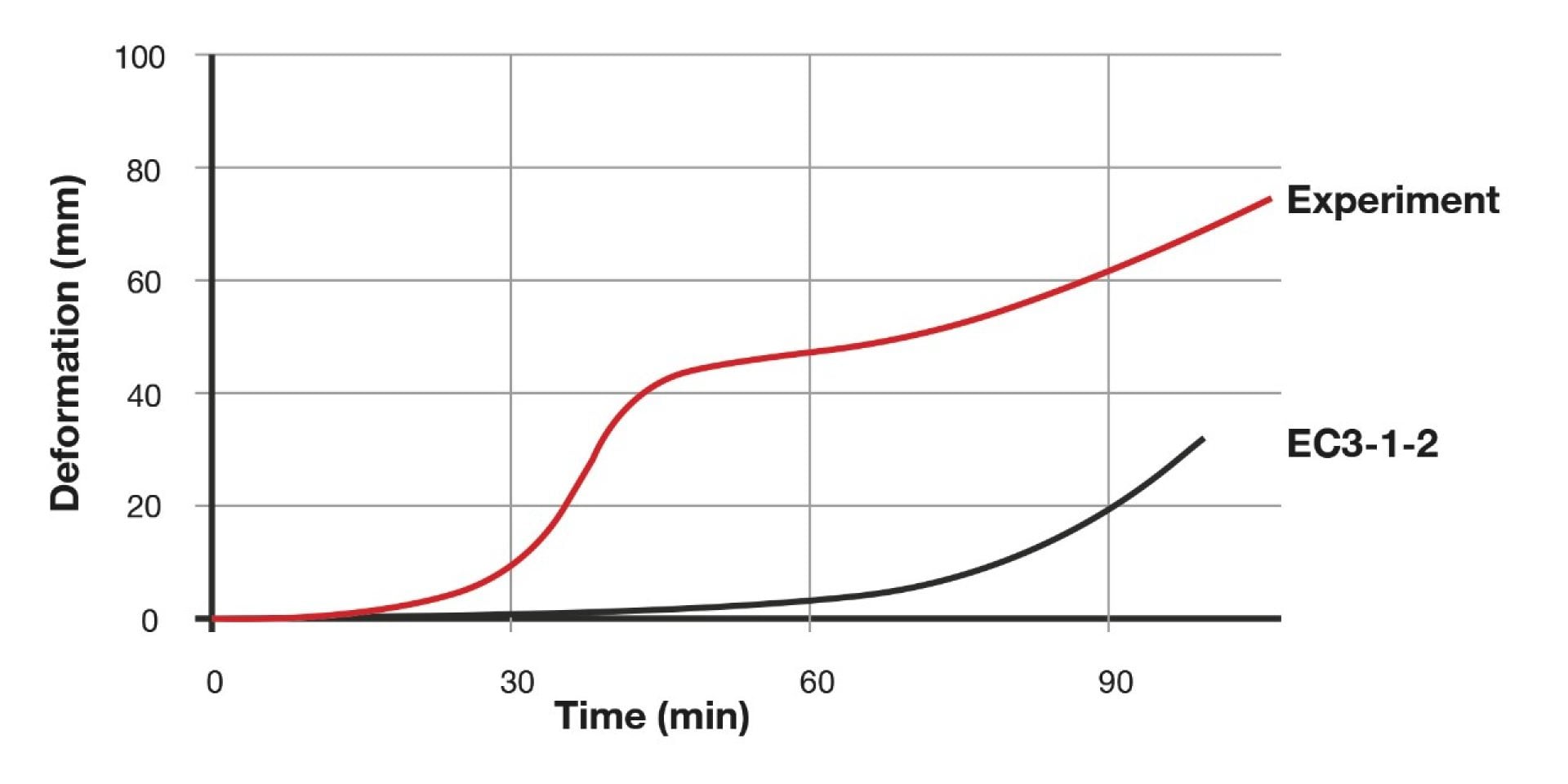
Test results prove the inadequacy of Eurocode 3
The Leipzig Institute for Construction Material Research and Testing (MFPA) has concluded that it is unsafe to predict the deformation of fire-resistant building service installations using the design method from EN 1993-1-2 (also known as Eurocode 3).
State-of-the-art design guidelines for MEP support systems
Hilti, in cooperation with leading fire institutes DIBt and EOTA, has worked on creating the new European Assessment Document (EAD) guidelines for fire-resistant design and testing, allowing for simple, flexible and cost-effective solutions.

ETA – European Technical Assessment
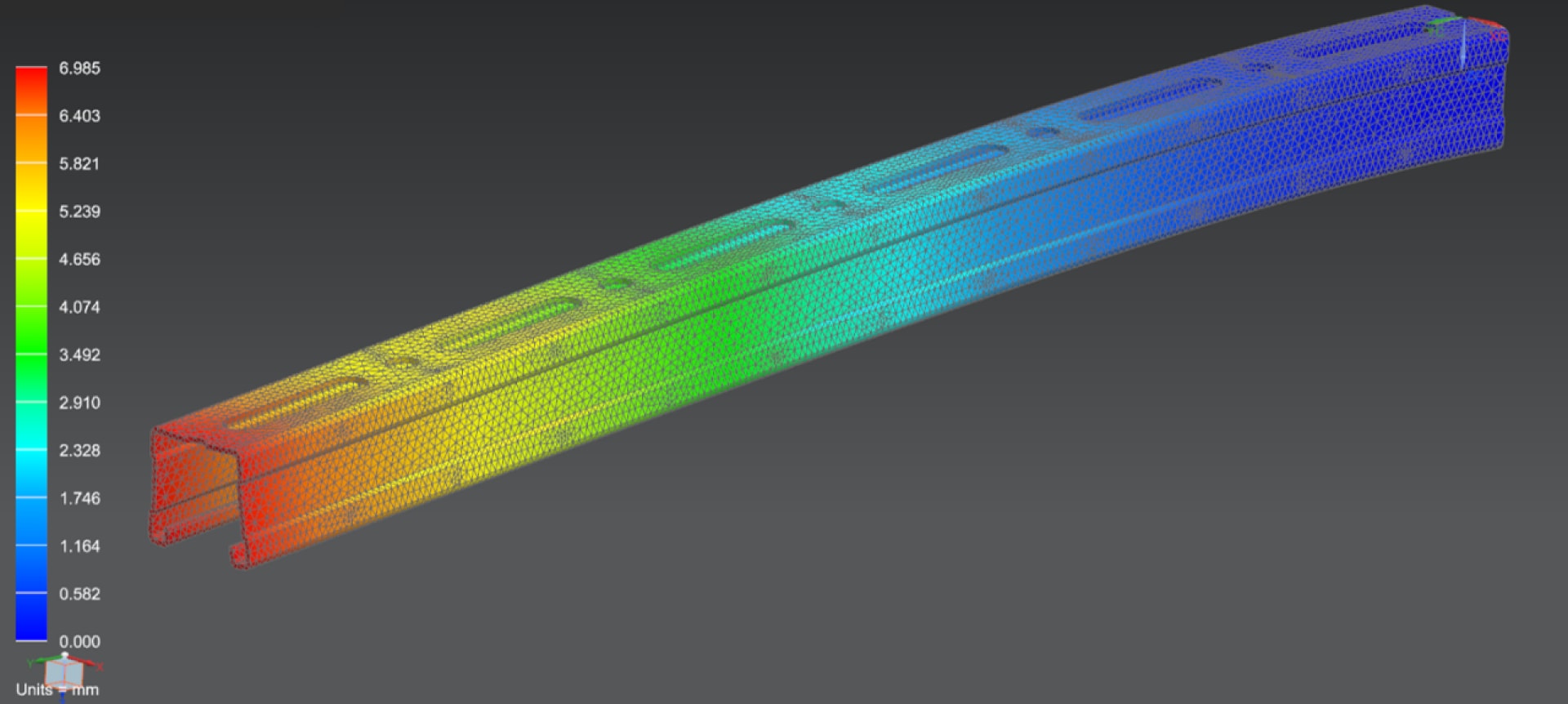
Hilti offers innovative, safe, flexible and legally-compliant solutions for fire-resistant, modular support systems. We have gone beyond current conventions to develop a range of duct, pipe and cable supports which you can rely on.
Choose from a wide range of ETA-approved products to meet all your legal responsibilities.
With these fully compliant components, you can be sure that your specifications will allow safe evacuation, unhindered access for fire fighters and protect valuable assets.
Relevant applications
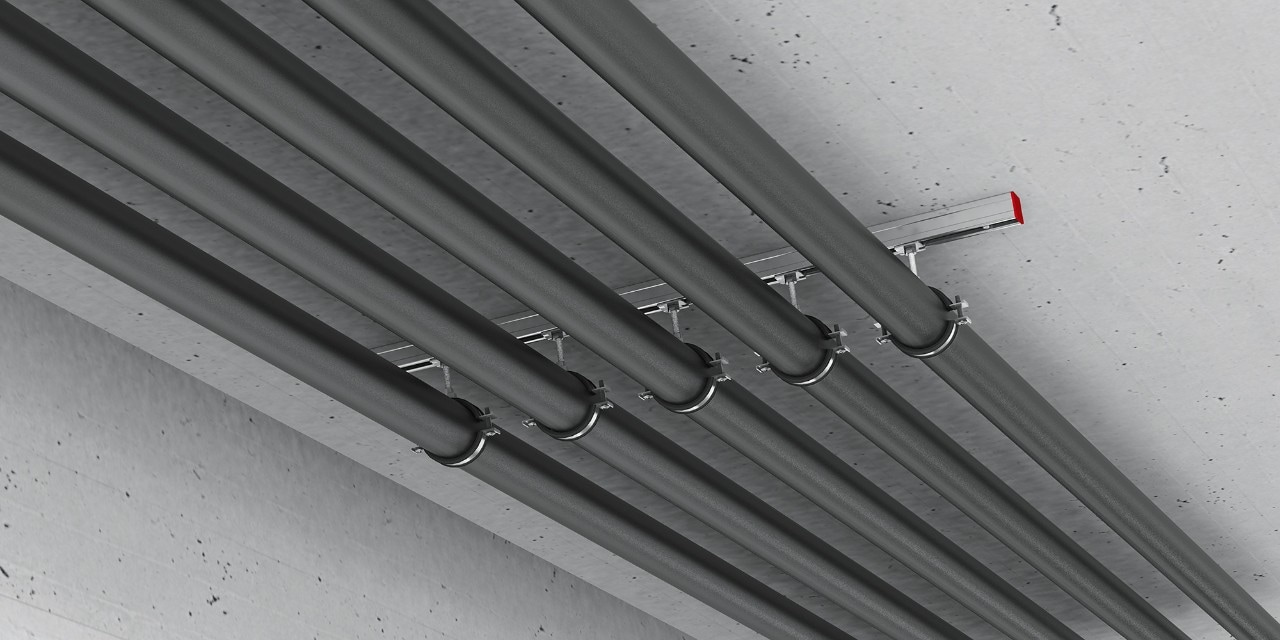
Headrail
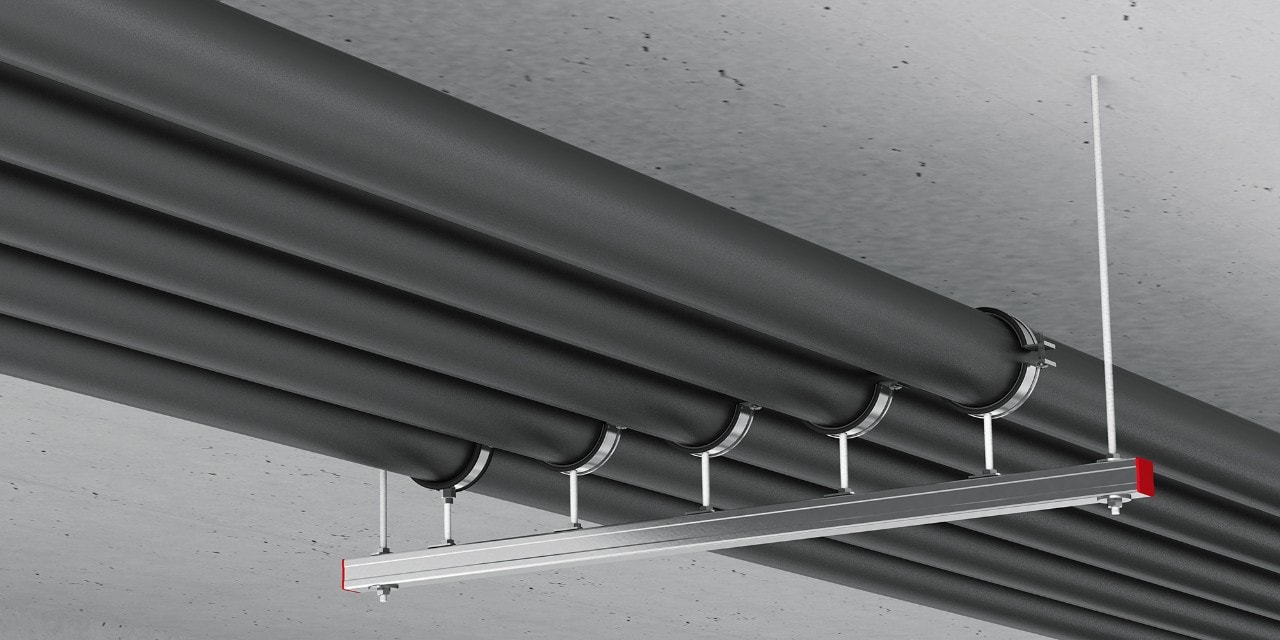
Trapeze rod
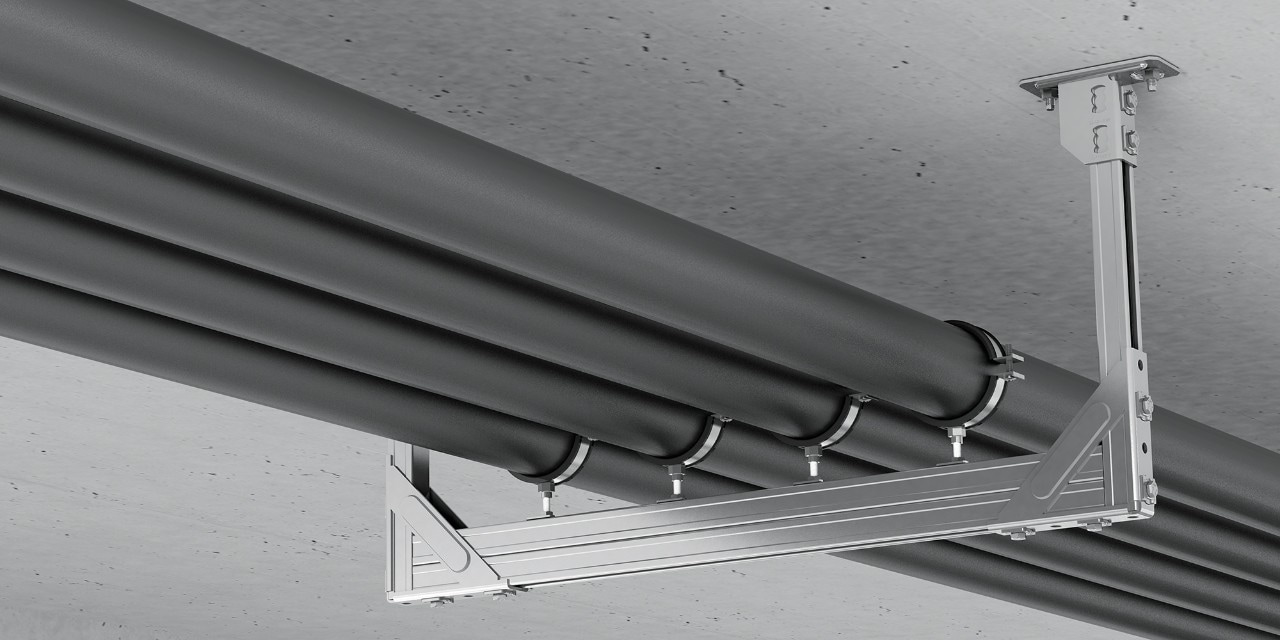
Trapeze frame
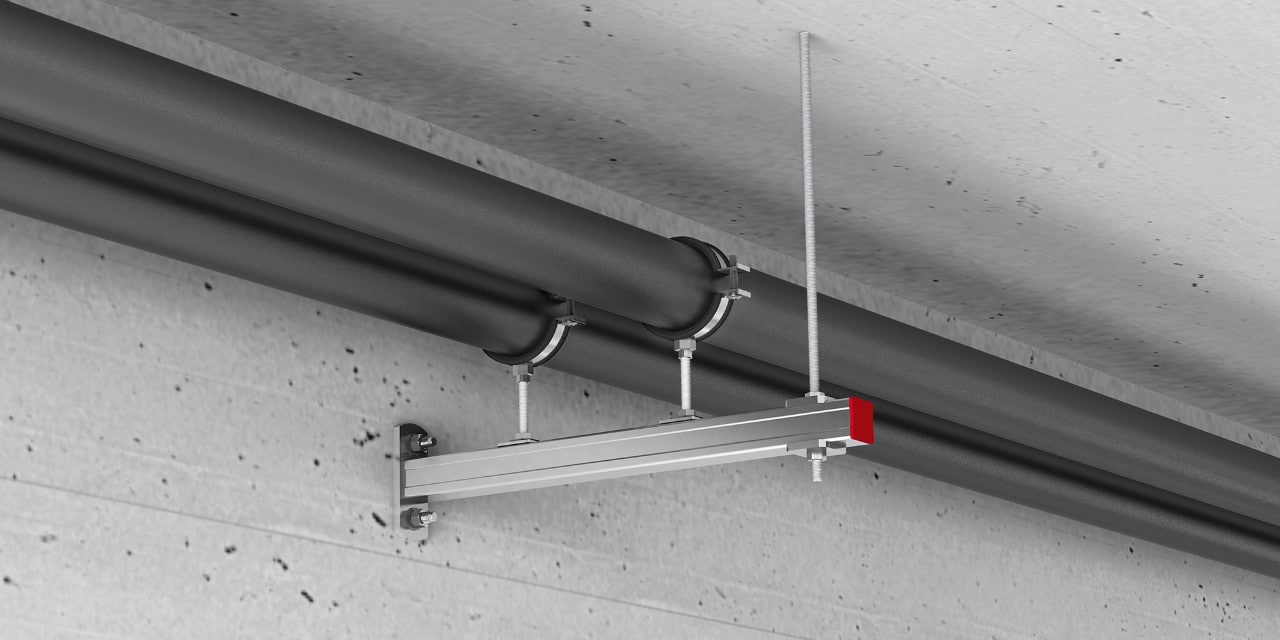
Suspended cantilever
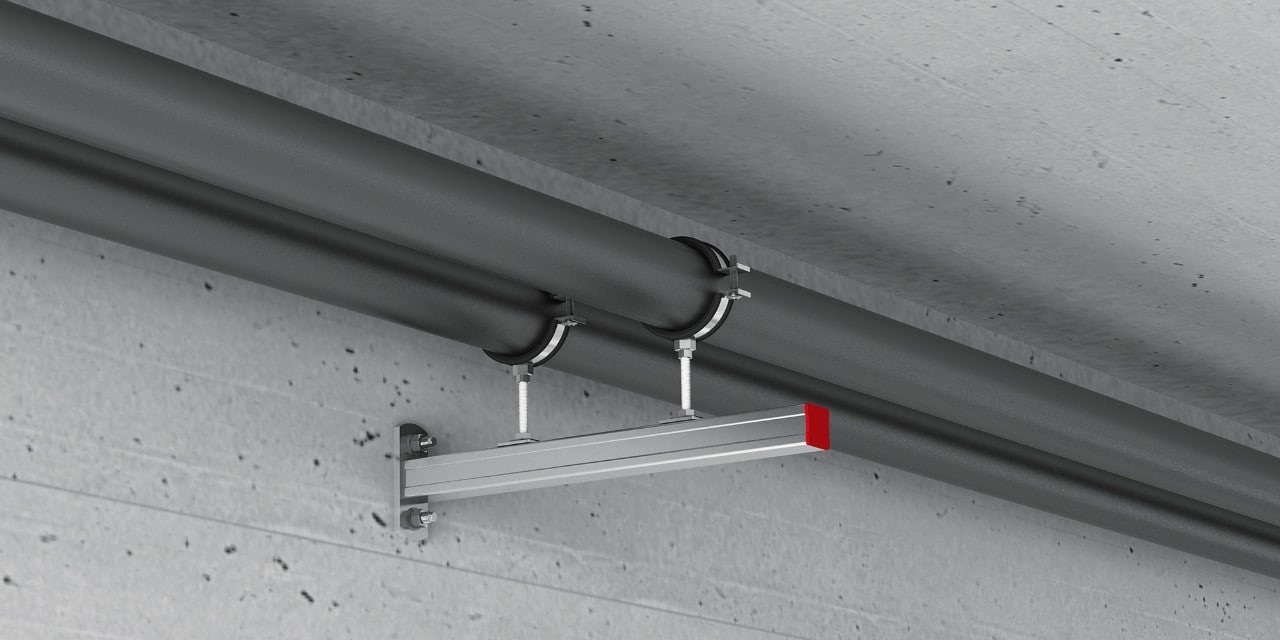
Non-suspended cantilever
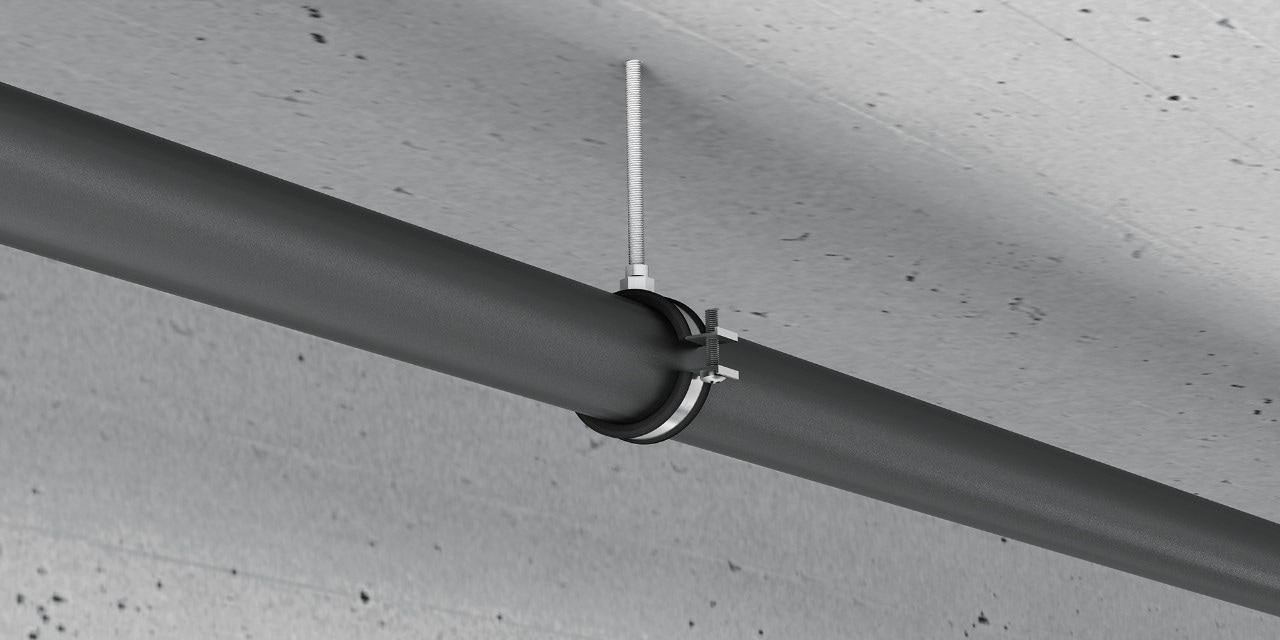
Single pipe-clamp
Hilti solutions and services
At Hilti we have more than 30 years of experience researching and designing products to protect people and assets from fire. These decades of gradual development have led to the comprehensive range of modular support systems, fastening technologies and fire protection systems which we offer today.
To boost your productivity and to save you time, we offer industry-leading support services as well as easy-to-use digital solutions.
Want to know more?
If you are dealing with these challenges in your current project, or if you need technical advice on product selection, let our expert Hilti Engineers assist you.

